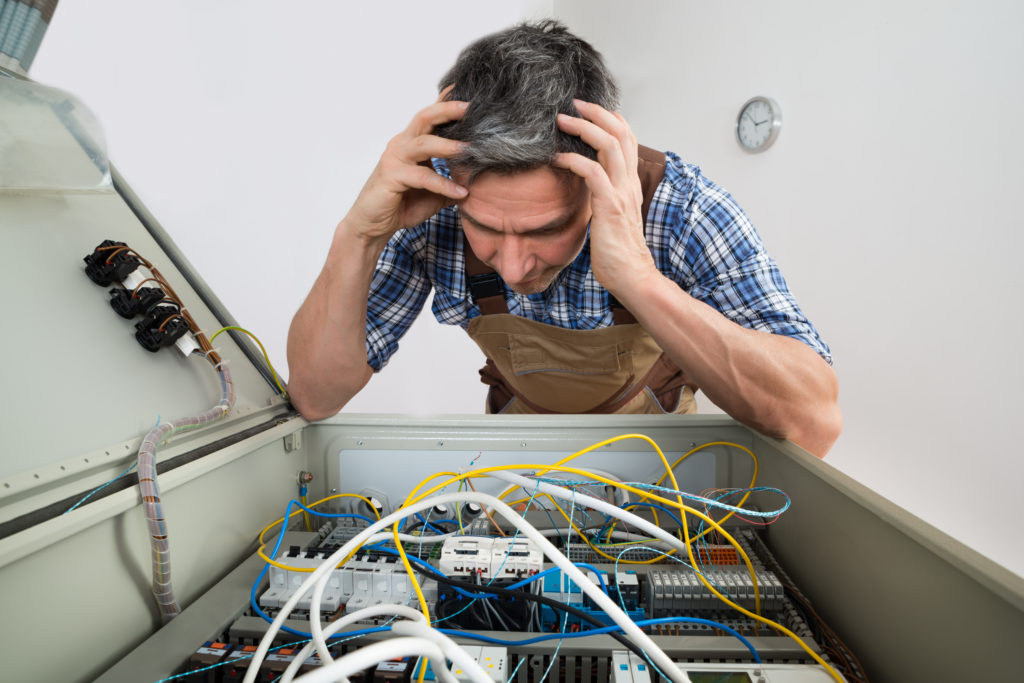No matter how carefully you plan or how much you invest in preventative maintenance, every manufacturing facility will, at some point, have electrical and mechanical failures. Any piece of machinery is only good as its weakest part and any component subjected to a form of stress will eventually have a breakdown. But while occasional repairs are to be expected, having an influx of only one type of repair can indicate a larger problem at hand. Recognizing these types of trends can save your company a large amount of time and money.
Input Side Failures-Power Supplies, Breakers & Contactors
If you have frequent input-side failures it could mean that you have a power distribution failure in your facility. This is most commonly referred to as “dirty” power. We prefer to call this a distribution failure as “dirty power” is very often confused with noise. Most often we see issues arise when input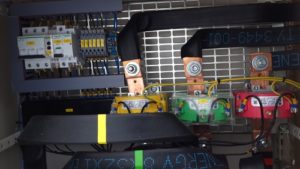 phases on a three-phase system are out of balance. This can be caused by one or more bad contactors, insulation loss on the mains power or even losses brought on by the power company. These types of failures qualify as “first-in-line”, meaning if the device is one of the first devices from main power and your machine power quality management could be something to look into.
phases on a three-phase system are out of balance. This can be caused by one or more bad contactors, insulation loss on the mains power or even losses brought on by the power company. These types of failures qualify as “first-in-line”, meaning if the device is one of the first devices from main power and your machine power quality management could be something to look into.
Control Circuitry – PLC’s, Processor Modules & Industrial Computers
Condensing problems regarding the this side of the machine may a bit trickier due to the complexity and broad range of devices that can be categorized 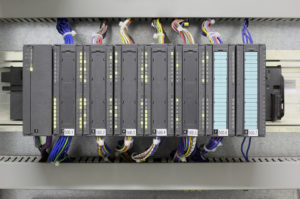 as “control logic”. For our purposes here we will assume that our failures are only hardware related and not the result of any sort of memory loss, programming errors or other software issues. Generally speaking when we see the failure of logic circuits it is very common for us to have environmental concerns. These devices by their very nature are very sensitive to multiple stress risers such as heat, contaminants, moisture and electrostatic discharge. If you are seeing failures in your most complex programmed devices, chances are there is an underlining environmental factor at play.
as “control logic”. For our purposes here we will assume that our failures are only hardware related and not the result of any sort of memory loss, programming errors or other software issues. Generally speaking when we see the failure of logic circuits it is very common for us to have environmental concerns. These devices by their very nature are very sensitive to multiple stress risers such as heat, contaminants, moisture and electrostatic discharge. If you are seeing failures in your most complex programmed devices, chances are there is an underlining environmental factor at play.
Human Machine Interface – Touchscreens, Control Panels & HIM Modules
As we like to say, interaction with a human is the most dangerous time in any piece of equipment’s life cycle. This is precisely why we see so many HMI’s being repaired in the service center. Such failures are usually relegated to 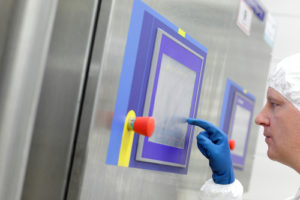 the portion of the HMI that is interacted with the most, such as touch-glass damage, button/key failure from overwork and wear from frequent activations. Failures in HMI’s are perhaps the easiest to investigate and track but depending on the culture of your facility can be the hardest to correct. You can easily make machine fixes or change processes to fix a hardware failure, it is much harder to train and reinforce proper procedures to equipment operators.
the portion of the HMI that is interacted with the most, such as touch-glass damage, button/key failure from overwork and wear from frequent activations. Failures in HMI’s are perhaps the easiest to investigate and track but depending on the culture of your facility can be the hardest to correct. You can easily make machine fixes or change processes to fix a hardware failure, it is much harder to train and reinforce proper procedures to equipment operators.
Motion Control – Drives, Motors & Starters
Failures regarding motors and drives can easily fill many blogs by themselves but the purpose of this article is to paint a broader picture- so here we will keep it simple. Most often when we have customers that send in many motors and drives, we usually see a general problem in their facility application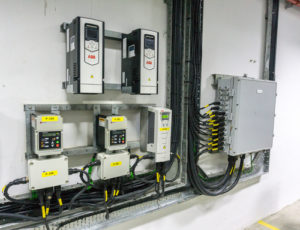 wise. To put it in other words we see sudden and unexpected load issues that develop into motion product failure. This could be equipment over work, poor mechanical maintenance or simple engineering flaws on the machine builder side. If small changes in production lead to frequent losses in equipment reliability, then it may be necessary to have an engineer take a look at your processes to look for technical flaws in application or perhaps the machine is being used outside of its design.
wise. To put it in other words we see sudden and unexpected load issues that develop into motion product failure. This could be equipment over work, poor mechanical maintenance or simple engineering flaws on the machine builder side. If small changes in production lead to frequent losses in equipment reliability, then it may be necessary to have an engineer take a look at your processes to look for technical flaws in application or perhaps the machine is being used outside of its design.
